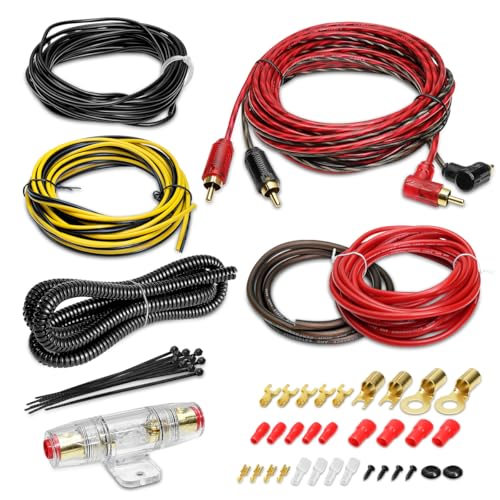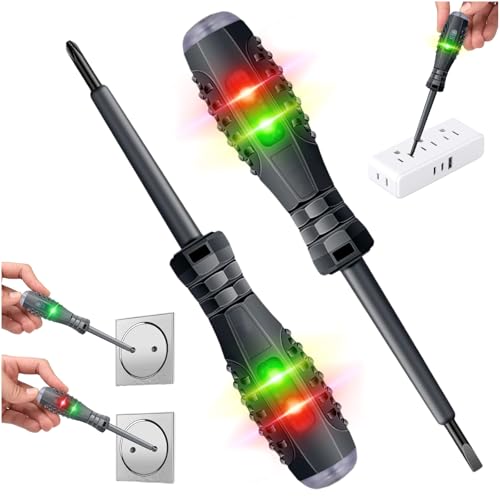Nice point but how can this practically be achieved when you have no access to neighbours ?:| ? :| ?:|it is actually illegal to instal an electricity consuming system WITHOUT taking into consideration other users of the network, (have at look at your providers T&C) so you MUST take into consideration your neighbours installation as well as your own.
You are using an out of date browser. It may not display this or other websites correctly.
You should upgrade or use an alternative browser.
You should upgrade or use an alternative browser.
Exporting earth on TT system
- Thread starter binky
- Start date

Help Support Talk Electrician Forum:
This site may earn a commission from merchant affiliate
links, including eBay, Amazon, and others.
part 16, I wopuld think, whereby you MAY be allowed some leeway in the assumption that their installation was also installed by a competent person, although may not be to the current edition of the regs.Nice point but how can this practically be achieved when you have no access to neighbours ?:| ? :| ?:|
as I also said before,
cost cannot and must not be used as a reason not to ensure total safety, this is where you rely on the section 16 argument in court.
Im sure someone will be able to point the relevant section out to you if you havent already read it, IT is there somewhere.
worded along the lines of,
where the danger is that of potentially fatal injury (ie, electrocution) cost will not have any relevance.
thats probably totally wrong, but it is there, BS7671 is only a guide for people to follow to keep reasonably safe in most circumstances, if you really have to follow it every time you do something then I think you would fail to meet the requirements of section 16, thereby you would be in the deep stuff in court.
sorry if you think Im banging on a bit,
but this is whe you can get yourself in a lot of trouble by thinking just because you have done it to BS7671 it will be ok,
many many times I have come across plainly dangerous installations even tho they complied fully to the relevant(current) edition of the regs.
have a look in the regs and see what it says about exporting various earthing systems and what precautions are required for them, it dont really say much at all.
complying with the regs can usually be used to aid your compliance with section 16, but it can NEVER be used as a subsitute.
the people that write the regs have no liability whatsoever for anything you doNo liability is liabilty, which is what we take on every time we start a job, and hence should be charging for.What I was trying to get at is that cost is always an issue even to the people who write the regs / legislation in the first place. And to cover their liability they tend to over state what is required to cover all possible likely events around the country, hence most of the standards tend to over state what is actually required as a catch all/ cover all, fall back position. Therefore compliance with regs is all that is needed and not adding to them eg using 10mm cable when 6mm is sufficient.
Hope I've made that clearer, I did type the previous post whilst half asleep:z
Now I'm typ[ing after a few of these Guiness Drinkbefore going back to :z
why do you think they would have?
that is like saying the guy wrote the highway code is responsible for all the road accidents there are!
BS7671 is a guide, not a rule book.
No but if the guy who writes the spec recommends a road design that causes accidents then he is responsible, although at that level it gets lost in corporate liability, where as we have personal liability. Which brings me back to the overspecifying of standards - look at all the road signs on an urban traffic calming scheme, there's so many you hav'nt got time to read them and drive safelythe people that write the regs have no liability whatsoever for anything you dowhy do you think they would have?
that is like saying the guy wrote the highway code is responsible for all the road accidents there are!
BS7671 is a guide, not a rule book.
That's not what I'm driving at. All safety systems are subject to 'cost benefit analysis' eg we would all like gold fillings in our teeth, but instead the NHS gives us zinc / mercury amalgam, cos its cheaper by miles.cost cannot and must not be used as a reason not to ensure total safety,
I worked on the TPWS aerial panels (train protection and warning system) now fitted to our railways to prevent the high speed accidents that caused several well known train disasters. The system is designed to prevent a slow train crossing the path of a high speed train (the scenario that caused these disasters) by automatically applying the brakes. It will not stop two high speed trains from colliding head on (unlike the european systems). However no accidents have involved two high speed trains hence cost benefit analysis was applied and TPWS chosen for our rail network at 1/3 rd the cost.
The point I think you are making Steps is the 'I did a c*ap job cos the client only had
Reasonably practical in our case would be compliance with BS7671 on whatever we are working on, the regs and associated BS standards being the interpretation of the statutory H&S law.I think you will find that you can NEVER use that arguement for the safety of an electrical installation.do you have a copy of EAWR? (it is in there.) it is the ONLY regs you MUST work to and it IS STATUTORY, unlike 7671 which is only guidance.
cost is never a factor in electrical safety,
as far as is reasonable practical, well that is covered in section 16 of EAWR also,
I would also argue that cost is always a factor, hence we use ring mains to get more electric down a piece of 2.5 FTE than it could otherwise safely carry, the DNOs use PME, and I use Click rather than MK acccessories. Saving pennies is obviously not a defence for shoddy work that may kill/hurt people.
I also like to sleep soundly at night

£18.57
Rail for PV Solar Panel Installation Includes End Clamp and Middle Clamp (Set 1(For 30mm))
KA KE LI MAO YI

£249.99
Davlex four 4 pot baine marie large tank 32 litre soup food doner sauce warmer commercial electric
Davlex Catering Equipment

£499.00
Davlex Commercial Electric Convection Oven Double Fan YXD1AE Bake Roast Browning
Davlex Catering Equipment

£25.84
Rail for PV Solar Panel Installation Includes End Clamp and Middle Clamp (Set 2(For 30mm))
KA KE LI MAO YI

£5.99
£7.99
2-in-1 High Torque Strong Magnetic Screwdriver Electricity Detector, Electrical Screwdriver Electrical Tester,Voltage Tester Screwdriver for Electrician Tools (2Sets)
Shenzhen Xudu E-commerce Co Ltd

£839.00
Davlex Large 108 Litre Commercial Electric Convection Oven Double Fan & Steam Humidity YXD-6A-H108L Bake Roast Browning
Davlex Catering Equipment

£18.58
Rail for PV Solar Panel Installation Includes End Clamp and Middle Clamp (Set 1(For 35mm))
KA KE LI MAO YI
your above argument has no sense to it whatsoever,Reasonably practical in our case would be compliance with BS7671 on whatever we are working on, the regs and associated BS standards being the interpretation of the statutory H&S law.I would also argue that cost is always a factor, hence we use ring mains to get more electric down a piece of 2.5 FTE than it could otherwise safely carry, the DNOs use PME, and I use Click rather than MK acccessories. Saving pennies is obviously not a defence for shoddy work that may kill/hurt people.
I also like to sleep soundly at night
NO matter what you do to a piece of 2.5 T&E it can still only carry a max of 28a (circa) safely,
DNOs use PME, what is that in aid of? its convenient, not cheaper,
click Vs MK, personal choice, I dont like MK myself as a rule.
Im not getting drawn into this any further Binky,
but I really dont think you have a very good grasp on what is law and what is simply a guide as to help you comply with the law.
the more I read your thoughts on this topic the more and more I feel that you would have problems complying with section 16.
do you have a copy of the electricity at work act? even a short version.
like I have said before, BS7671 is only a book, it has NO authority, the sooner people start to grasp this the better,
doesnt it say in it somewhere that compliance with it will IN MOST CASES ensure compliance with the law, but NOT ALWAYS.
anyone can follow a cookbook, its a good chef that can combine and calculate his own ingredients for an original dish that is not bog normal burger and chips.
Ok Steps, not had a chance to re-read section 16 and yes I do have a copy, just think you are getting abit tied up in legal weasel phrases like 'in most cases' and 'not always' which legal jargon is full of.
I am also planning to do the design course next year because I want to be a good cook, and I'm fed up with standard 'recommendations' that contradict things like the adiabatic equation.
Thanks for your help Applaud Smiley
Binky
I am also planning to do the design course next year because I want to be a good cook, and I'm fed up with standard 'recommendations' that contradict things like the adiabatic equation.
Thanks for your help Applaud Smiley
Binky
Similar threads
- Replies
- 4
- Views
- 960
- Replies
- 1
- Views
- 890
























































